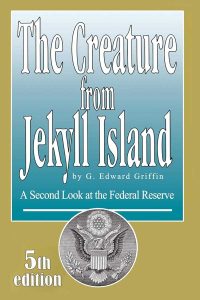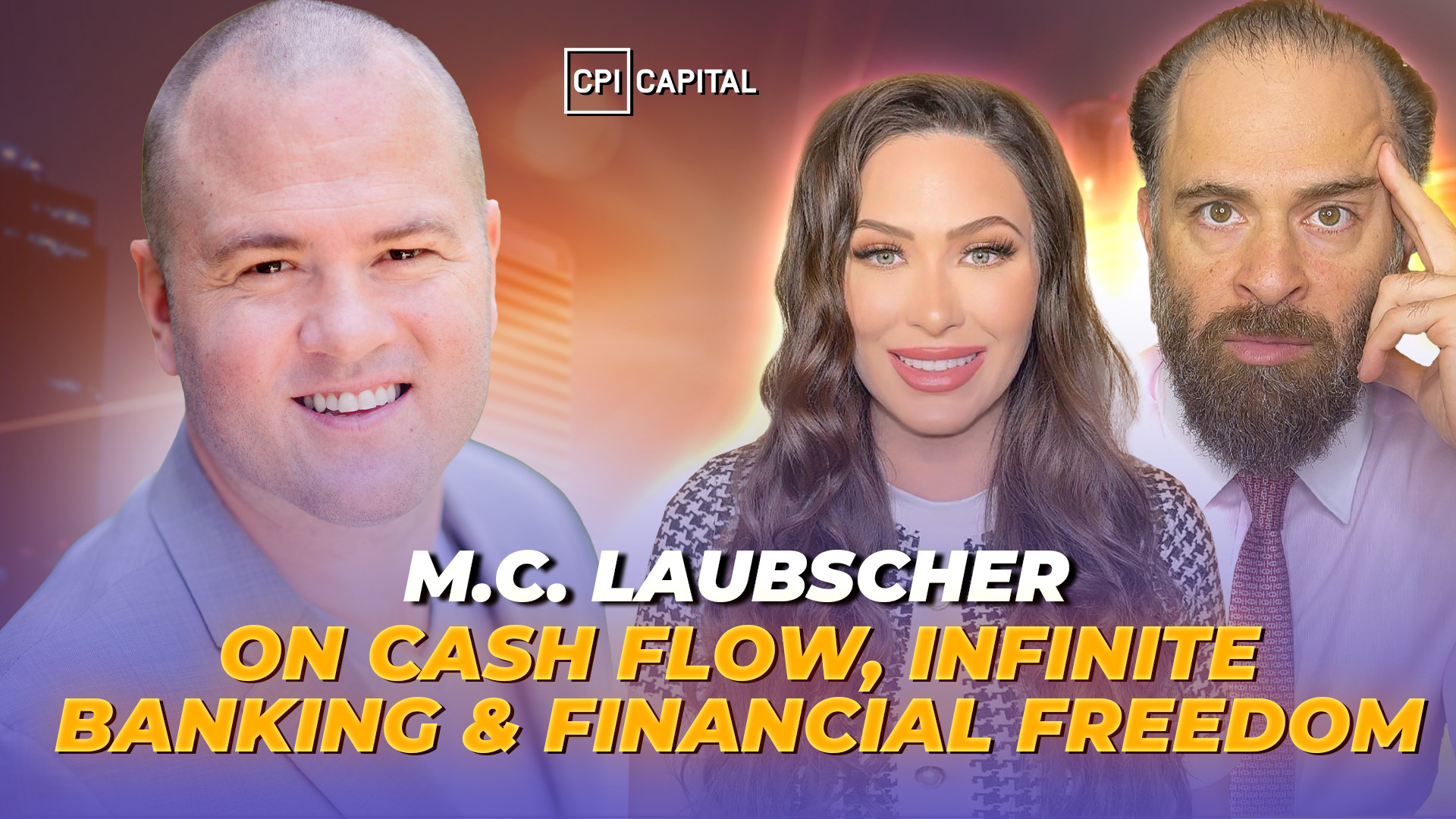
Wealth without wall street? Find alternative wealth strategies with infinite banking! But it sounds complicated, right? Michiel (M.C.) Laubscher, a seasoned investor, author, and podcaster, is here to change that. He’s not just talking theory; he’s sharing his real-world experience from South Africa to building a financial strategy in the US. Diving into his approach with real estate and Infinite Banking, M.C., founder of Producers Wealth and host of the Cashflow Ninja podcast, shows how business owners can master cash flow, unlock tax efficiencies, and ultimately, achieve financial freedom by mirroring the banking system to profit from their finances.
Get in touch with M.C. Laubscher:
- LinkedIn: https://www.linkedin.com/in/mclaubscher
- Website: https://www.getwealthyforsure.com
If you are interested in learning more about passively investing in multifamily and build-to-rent properties, click here to schedule a call with the CPI Capital Team or contact us at info@cpicapital.ca. If you like to co-syndicate and close on larger deals as a general partner, click here. You can read more about CPI Capital at https://www.cpicapital.ca.
#avabenesocky #augustbiniaz #cpicapital
—
Watch the episode here
Listen to the podcast here
Important Links
- M.C. Laubscher
- Get Wealthy For Sure™ Resources – Producers Wealth
- Get Wealthy For Sure: The #1 Financial Strategy for Business Owners to Multiply Wealth Predictably
- Cashflow Ninja
- Rich Dad Poor Dad
- Becoming Your Own Banker
- The Richest Man in Babylon
- The Creature from Jekyll Island
About M.C. Laubscher
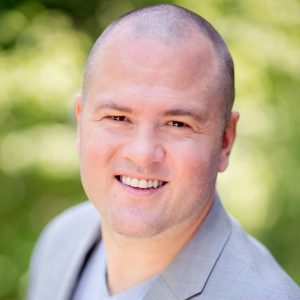 M.C. Laubscher is a husband, father, business owner, investor, podcaster, and best-selling author.
M.C. Laubscher is a husband, father, business owner, investor, podcaster, and best-selling author.
As one of the leading voices in alternative wealth strategies and alternative asset investing, M.C.’s passion is helping business owners achieve more freedom and sovereignty and live and leave a legacy for their families.
M.C. is the founder of Producers Wealth, a firm helping business owners in all 50 states in the United States implement and execute advanced alternative wealth strategies.
M.C. is the creator & host of the top-rated business and investing podcasts Cashflow Ninja, Cashflow Investing Secrets, and Cashflow Ninja Banking.
How To Build Wealth Without Wall Street | M.C. Laubscher On Cash Flow, Infinite Banking & Financial Freedom
Welcome back to the show.
Vancouver Ventures, Investor Enthusiasm, And The Cashflow Ninja
We do this a lot. We have a lot of guests. There’s a lot of information and a lot of technical stuff on these episodes. Sometimes, the energy might not be there.
Speaking of energy, a lot of people love hearing where we’re at in the world and what’s going on in the life of CPI Capital, sometimes on a personal level as well. We’re in Vancouver. Our 2nd son, Apollo, is turning five months. It’s unbelievable how fast time flies. We closed on Apollo Oaks, named after Apollo, our son. We’re closing on that one. We’re oversubscribed. We have investors wanting to get in. I’m saying, “I’m so sorry we have too much capital.” It’s great to see that. Investors are getting excited about starting to reenter the market with us. There are a lot of great things happening.
Investor sentiment was down, and there was a trade war happening between the US and most of the world. As far as sentiment, it was down. There was a lot of anxiety and a lot of tension.
August is getting me on stage, presenting in front of a bunch of proud Canadians to invest in US real estate, and I was having a blast. We’ve got lots of people wanting to put their money into US investing.
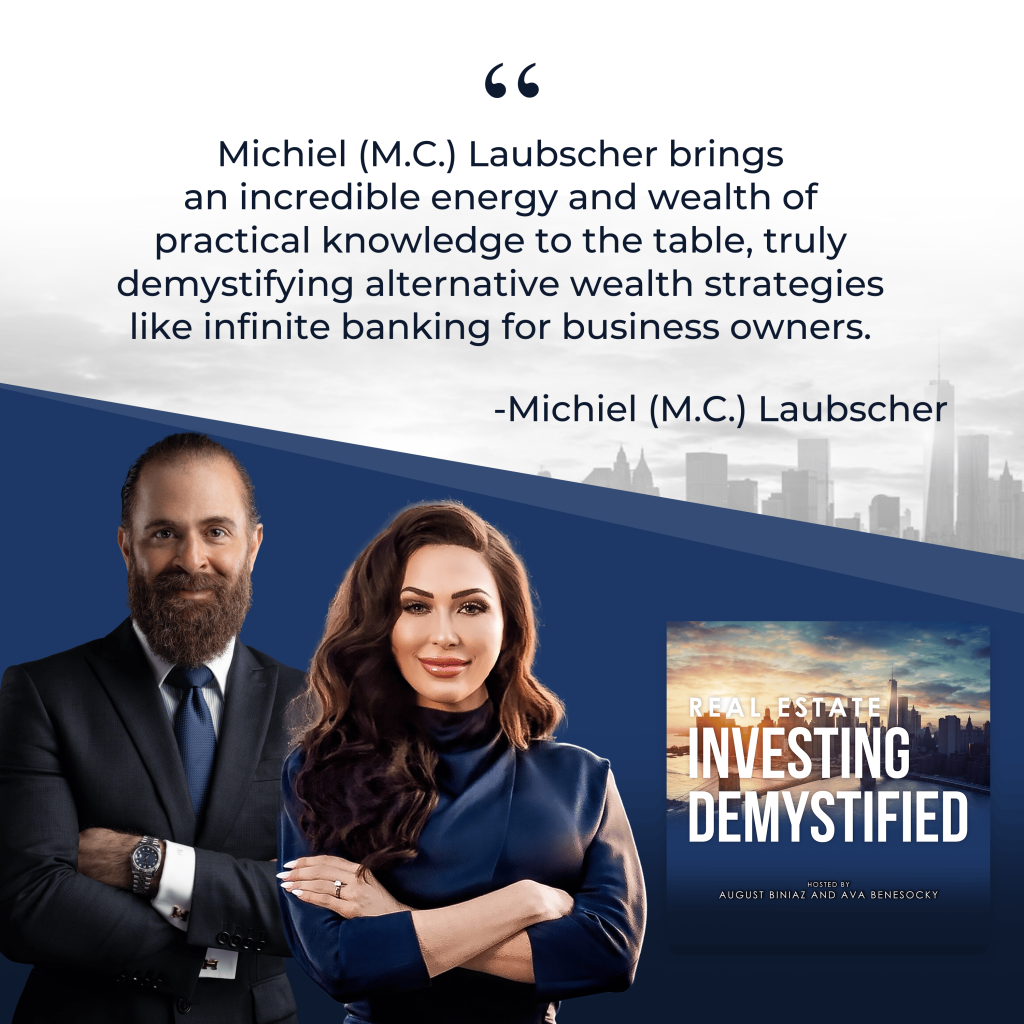
Let’s get to our show. I am super excited about our show. When we started this business years ago, getting out there, getting our name and brand known, and getting on podcasts was a big part of the business. Initially, prior to real estate, private equity, and CPI, I didn’t have much to share, so there was a bunch of anxiety about getting on shows.
One of the shows that was on my radar to one day get on was Cashflow Ninja. I heard about the show and knew about the host. I was excited to get on the show. I had the privilege of getting on the Cashflow Ninja show. I was expecting this shaved-headed host, but he ended up having a full head of hair. I am excited about our guest, who is the host of Cashflow Ninja, joining us. Maybe you can tell our audience a bit about our guest before we bring him on.
I would love to. We are joined by M.C. Laubscher. He’s a father, a husband, and a business owner. He’s an investor, a podcaster, and a bestselling author as one of the leading voices in alternative wealth strategies and alternative asset investing. M.C.’s passion is helping business owners achieve more financial freedom. Welcome to the show, M.C. We’re excited to have you here.
Welcome to the show.
Thank you so much for having you. I’ve been looking forward to the conversation.
Likewise. Prior to the show, we were doing research on you, M.C. Other than loving the energy that you bring to the table when you’re speaking on camera, we read a bit about you. You seem to be following the path of many savvy investors, which is a dual primary investment approach. You are investing in real estate and infinite banking. Tell us about your beginnings. You are based in the US. Talk to us about your move to the US, and when infinite banking and real estate became your two primary strategies that you utilize.
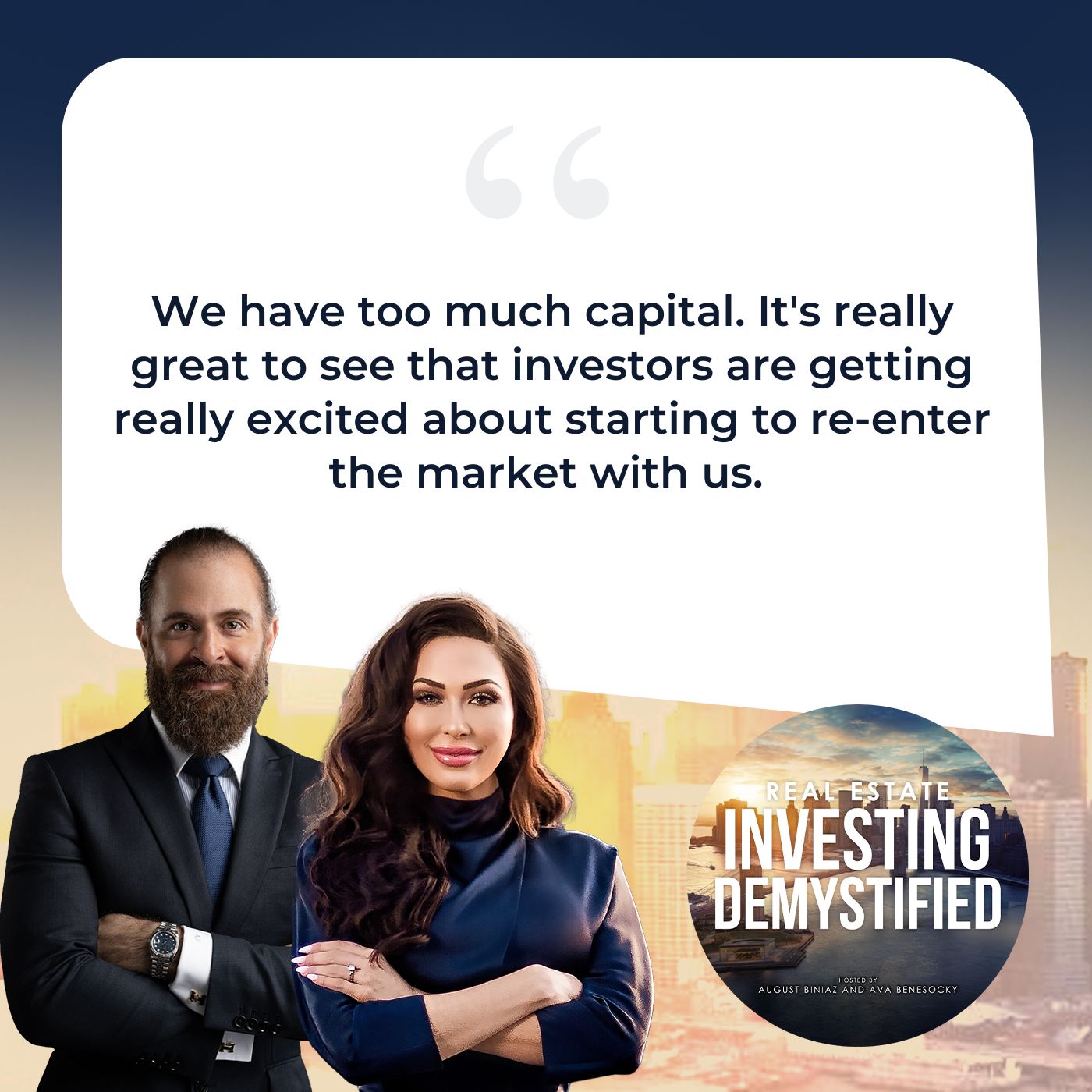
From South Africa To American Wealth Strategies
Originally, I am from South Africa. I grew up during a very interesting time in the country’s history. At the time of recording, it seems like we’re going through some more interesting times.
It seems like there is. A paradox is happening with what’s going on over there.
South Africa’s back in the world news, to the front of it. A very well-known South African entrepreneur, Elon Musk, has been in the news for a while. When I grew up, it was very interesting. I was a young man when we went from the apartheid regime. I remember when Nelson Mandela was released from prison, the new elections, and then a new form of government was formed.
I always said to folks that this is a big part of my story and who I am, because living through that period, I don’t think people realize what an environment looks like when it’s pretty chaotic. There’s a lot of uncertainty. Nobody knows what’s happening the next day. It was wild. It was like, “What’s happening?” It’s difficult to start planning and thinking, “What does the next six months look like, or the next 5 or 10 years?” if you can’t even think about what’s happening tomorrow.
We’re all familiar with the concept of the madness of crowds. I lived through that and saw that firsthand as a young man, too. All this stuff was a gift. I was one of those people when people were in the US fighting each other and wrestling over toilet paper in 2020. I was like, “I’ve seen this stuff before when I was a young man.” I came to the United States in 2001. I had an athletic scholarship in South Africa in college and then traveled a bit. I ended up playing in a sports league up until 2007.
Was it rugby?
Yes.
I guessed before the show that you played rugby.
Community is awesome across the world, too. There was a city-based league here. I was a young guy at that stage. I came to the US with a backpack, one suitcase, a sense of humor, and a sense of adventure. I was playing and traveling in different parts of the country and different parts of the world. It was awesome. I was the guy on the team bus or team playing that instead of playing cards, video games, or something, I was always reading. I was reading about business. I loved history and economics. I read about that. I was always interested in building some sort of business when my athletic career was done.
I came across Rich Dad Poor Dad by Robert Kiyosaki. My parents had a big financial setback. My mom saw the book somewhere in a bookstore in South Africa and bought it. She came to visit me, gave me the book, and said, “Read this. We went down this path the conventional way. Maybe you should look at something else.”
Real Estate Beginnings: The Cash Flow Awakening
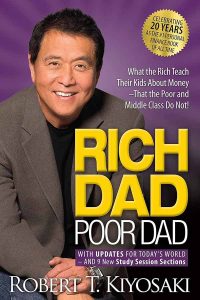
Rich Dad Poor Dad: What the Rich Teach Their Kids About Money That the Poor and Middle Class Do Not!
I read the book, and within the first 6 months, I bought my 1st property. It was a single-family real estate. I put some tenants in it, collected rent, paid all the expenses, and there was money left over. I’m like, “Cashflow, like the book. This is great. How many times can I do this?” That’s when school started for me. That was my goal. I was trying to build a real estate business using the money that I was generating through sports and then doing odd jobs. I was putting that in real estate. That was the plan.
As I progressed during that and started to learn and meet different people, different types of real estate came into my life. Infinite banking came into my life. Family office and multi-generational strategies came into my life. I do have to say I was very fortunate because I didn’t seek it out. It happened. The book kicked off the cashflow and then that concept of cashflow in a different path.
As I re-read the Rich Dad Poor Dad book, other themes came up, like, “All the liabilities on my financial statement, those nice simplified ones in the book, are someone else’s asset. Whose asset is this? It’s the bank.” It always started to come down to the bank. The book, Becoming Your Own Banker, by Nelson Nash, came into my life. I found infinite banking.
Several years ago, I started a business called Producers Wealth. What Producers Wealth is, is that we blended the strategies that I was implementing and executing. We were business owners and investors utilizing infinite banking and other finance strategies for business owners and investors. The mainstream financial advice is not geared towards business owners and investors. I built this firm out in 2015, where we serve business owners and investors in all 50 states in the United States. It was all virtually back then, which was interesting.
The mainstream financial advice is totally not geared towards business owners and investors. Share on X
In 2016, I started a show called Cashflow Ninja. The show started by interviewing our clients. I saw these different things that people were doing from a business standpoint. I’m very curious, and I love to learn. I continue to learn. I was having these amazing conversations, and I couldn’t believe what people were doing to make money, generate money, and diversify in alternative asset classes.
I started to press record. We started publishing it, and it turned into its own beast. Millions of people listen to it around the world. 180 countries, I think. It turned it into its own financial education company. That’s what I’m still up to. I am running Producers Wealth, and then we still publish a podcast a week on Cashflow Ninja.
Infinite Banking Explained: Mimicking The Banks For Personal Profit
That’s truly amazing. You can almost call the people who come across what you’re teaching the lucky ones. Nobody knows about financial literacy. When they learn about the different strategies, their life changes, like your life changed with that first house that you got. It seems like your focus, M.C., is providing infinite banking services to clients, followers, business owners, and so forth. Prior to the show, while we were doing some research, August and I felt that you had the best explanation on what infinite banking is. Could you give us a crash course on exactly what infinite banking is?
Absolutely. Infinite banking is a strategy. That’s the first thing. It’s a strategy of how you mimic what the banks do already within your own personal business and investing economy. When you look at a bank, whether you deposit money in a checking or a savings, whether you spend it, or whether you borrow to spend it or invest, the bank makes a profit regardless of what you do. You could do any of those things, and they make money from it.
What infinite banking is is taking that model and implementing it in your own life with the exact same concept, where instead of depositing money in a commercial bank, saving it there, and spending it from there or borrowing to spend and invest, you are doing it through your own system. You get to make a profit, and your family gets a profit. Your economy flourishes.
This was conceptually one of the best ways. It was explained to me by Nelson Nash. He said, “If you think of the world as one big giant pool of water, it’s just one thing of water. You’ve got all the different oceans. They’re connected. You’ve got the rivers. They’re connected, and they’re connected to the oceans. You have underground water. The Earth gets hot, and the water starts to evaporate. It forms clouds. It starts to get heavy. It breaks and it comes down. Where does it go down to? Back into the oceans, the river, and underground water. It’s all one giant pool of water. It always comes back.” That’s the system.
He said, “Look at the commercial banks. They’ve got it figured out with money.” If you think about it, regardless of what you do, the money always returns back into the commercial banking system. If we go to have a nice dinner, have some nice wine, and enjoy some good food, at the end of it, we’ll pay for it. It will go from our checking account or credit card company into the merchant account of the restaurant. They would pay the wait staff, and they would go deposit that money in their bank. It goes over and over. When you buy real estate, you take cash or a check to the closing table. It’s going to end up in somebody else’s bank back into the system.
What you do with infinite banking is you create a vehicle similar to this, where you deposit and capture your cashflows, and then you deploy it from there into the economy. It’s always coming back into your own system. Nelson Nash also said, “You have to be in two businesses at any given point in time. You have to be in the business that you’re in, and the banking business. There’s no other way around this. If you’re not, there is a silent partner, which is the bank. It’s going to be someone else’s bank, or it could be yours.”
What infinite banking then does is it’s that strategy. A lot of people get caught up in it because the ultra-affluent and family offices use the vehicle of life insurance. When you say that, that’s a bad word. It’s almost like a four-letter word. It’s incredible. I share with people that I know folks that do this with gold in the Cayman Islands. They buy gold and store it in the Cayman Islands. They do this exact same system that I’m going to share with gold, and everybody gets excited about it. Yet, when you talk about the life insurance aspect, it’s the focus on the vehicle.
In family offices, this strategy has been going on for 170 years. Life insurance is just a vehicle that facilitates this whole system. What it is is a very specifically designed life insurance policy that you structure and set up. It’s structured to maximize the savings aspect of it, the living benefits, not just the debt benefit. Most people think, “Life insurance? Somebody has to kick the bucket for someone else to benefit from it,” but it’s a vehicle in which you can warehouse a significant amount of savings.
The reason why you choose life insurance is that the money that’s going in there in this very specifically designed policy for maximum savings, not just the death benefit, the money is guaranteed. It’ll never go down in value. It’s guaranteed to grow contractually. You also get dividends because you set it up with a mutual life insurance company. It’s a dividend-paying whole life insurance policy with a mutual life insurance carrier. You get to participate in the profitability of those companies that have been around for 170 years through the dividends.
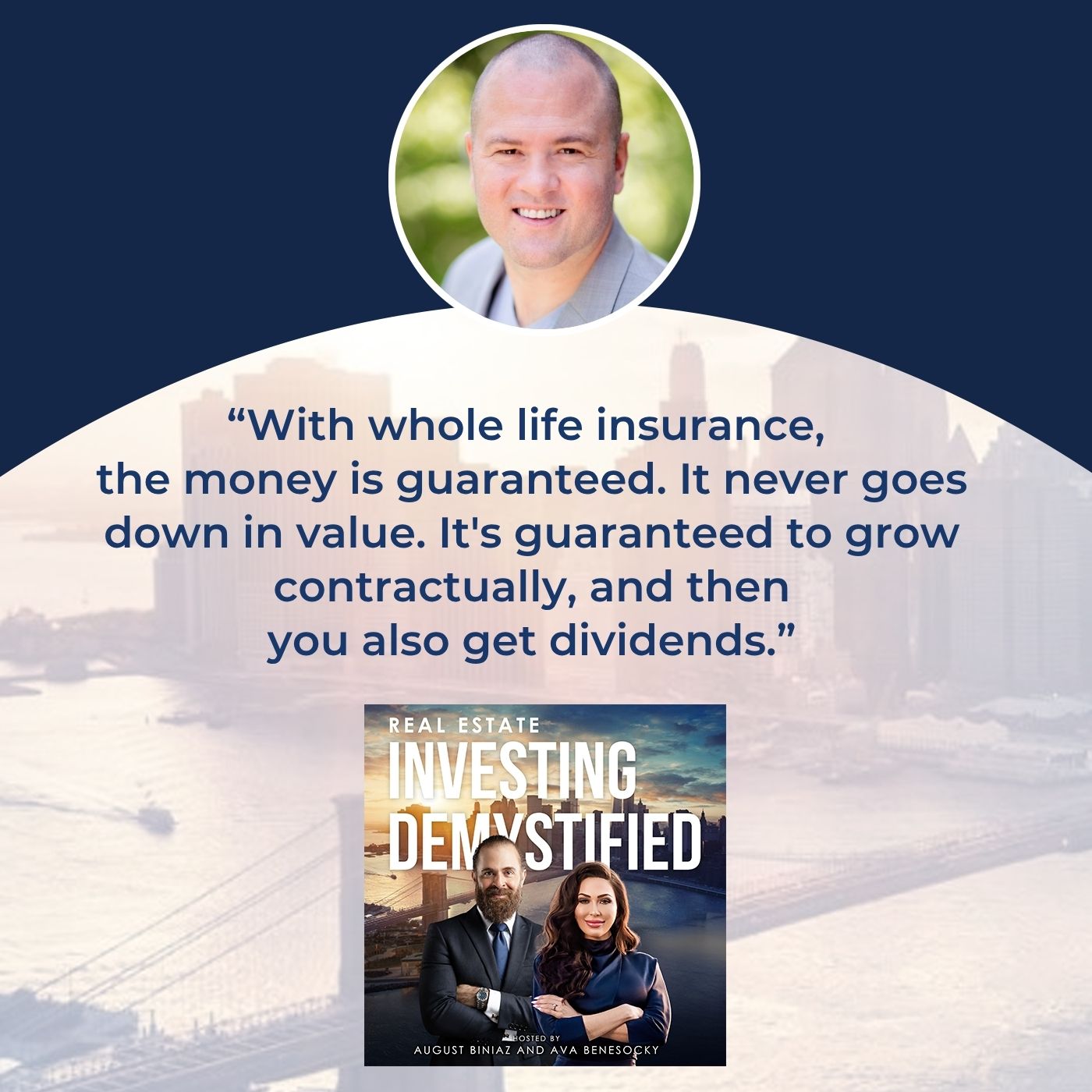
You’re participating in the profits of the insurance companies, not in the funds they invest in. We know insurance companies lend to commercial real estate, the space we’re in. They have a very diversified portfolio, similar to sovereign wealth funds, endowments, and so on. They have those allocations. You’re saying that you’re not only participating in the investments they make, but you’re participating in the actual entity itself, the life insurance itself, and the profits that company or that entity is making.
Life Insurance As An Asset: Participating In Company Profits
With whole life insurance, that’s it, because it’s not connected to any funds or the stock market. It’s the overall profitability of the company. You get to participate in the profitability. Some of them have been profitable every single year for 170 years. If you think about it, in the US, you had the Civil War. There were two countries, two armies, two presidents, Congress, and two different types of currencies. You had the creation of the Federal Reserve in 1913. You had World War I, World War II, the Great Depression, market crashes, and economic recessions.
GFC.
Nixon taking the world off the gold standard in ‘71, the petrodollar coming in ‘74, the dot-com boom and bust, and the GFC great financial crisis. You’ve had all these things. That’s the only way that you can participate in it. It is through one of these policies. In the vehicle, it’s guaranteed to grow. You have access to dividends. All this is tax-free. There is a death benefit.
Here’s where the strategy comes in. The strategy is this. The capital gets built up in these policies. When you access capital from these policies, you do so through a policy loan, a line of credit secured by the value that’s inside that policy. If you had, let’s say, $500,000 and then you needed $100,000 for a real estate deal that you’re trying to do, you would get a policy loan for $100,000.

Infinite Banking: With whole life insurance, it’s not connected to funds or the stock market. You participate in the company’s overall profitability.
You’re earning. The numbers are 6% dividends inside the policies. The loans are around 5%. What has happened there is that the value of the policy or the capital, you don’t touch it. It compounds. There’s uninterrupted compounding in the policy, and then you get to establish a line of credit against this to use it to buy real estate.
Who sets that 5% interest rate?
That’s tied to Moody’s Corporate Bond Average Yield. There’s not a massive spike in difference. It’s very stable. This is the other question that people ask. They’re like, “This sounds too good to be true.” I deposited my money in there, and it keeps on growing uninterrupted and compounding tax-free. I then get a guaranteed line of credit against that to use and buy real estate. You can pay that line down. It’s a revolving line.
It sounds too good to be true, but it’s not. If you’re on the other side of the life insurance company, they’re covered twice. They have your capital, your cash value, and a death benefit. There are certain banks that also offer Life Insurance Lines Of Credit. Their LILOC rights, as they’re called, are even better than their HELOC rights because the banks prefer the life insurance as collateral versus the real estate because they’ll recoup the full amount on their LILOCs.
With real estate, when they take that back, they have to sell it at a discount. They don’t know what state the real estate is in and so forth. It’s a very solid asset loss, especially if you want to think of how family offices think and affluent families think. Life insurance is an asset clause like real estate. I have put together content on how it’s the exact same thing, but different collateral.

Infinite Banking: Consider how family offices and affluent families view life insurance as an asset class, just like real estate.
I applied for the mortgage for the Apollo Oaks property. One of the lines was, “Do you have a life insurance policy as your assets?” Commercial real estate lenders look for that and consider that as an asset.
How is the interest rate paid? Let’s say on $100,000 that you borrow against your policy, that 5%, is it taken off? How does that work, the interest rate?
A simple interest. You could pay it at the end of the year. Let’s say they pay $5,000. With one of our clients, there’s a note fund that they’re in that we’re paying them 12%. They make a spread of $7,000. They are making $7,000 in profit, and their money’s growing inside the policy tax-free, earning 6% dividends can’t go wrong. There are a lot of things to it.
I want to emphasize that it’s the strategy. This whole thing is the strategy. The client that I was talking about, who also does this with gold out of the Cayman Islands, does the exact same thing. They buy the gold, set up a line of credit against the gold, and repay it. The gold is the collateral, whereas with this, your life insurance is the collateral.
There are so many different ways to do it. You have asset-based lending, which a lot of people are familiar with. If you have a portfolio of stocks, you could set up a line of credit against that. Stocks go up, down, and sideways, so be prepared for collateral calls to increase your collateral if the stock market is going down. That’s how Elon Musk bought Twitter. He placed Tesla shares as collateral to get the capital for the down payment. Why wouldn’t you sell the Tesla shares? You would’ve to pay taxes on it.
It’s a capital tax event.
You could do the same thing with business. The assets of the business, placing the receivables as collateral. You could do the same thing with art. That’s another thing that people have used. Cryptocurrencies. That comes with the warning label because it’s extremely volatile. You will get collateral calls if you do it with that.
CDs and bonds, people have used those as similar vehicles. Of all of these ones, I’ve done gold and used cryptocurrencies, but my number one way to do this strategy is life insurance. It’s the best one. I come back to it every single time, of all the different ways that you can leverage the assets that you already have to buy and acquire other assets.
I love it. Let’s do an exercise.
I was going to do the exercise, if you don’t mind.
Please do.
We were trying to do an exercise here. We can do it somewhat quickly because I know we have limited time. We wanted to do a socioeconomic type of exercise. Let’s say that for a certain type of demographics and certain types of classes in a society, we’re talking about the upper middle class and upper class. These are people who make over $150,000 a year on average in Canada and the US.
Designing A Wealth Strategy: Cash Flow Management And 10% Rule
The exercise we’re doing is for upper middle class and upper class people who make $150,000 or more per year. Let’s assume they have a couple of kids. Let’s assume that they own their primary residence. Let’s assume that they own a rental property as well. They’re somewhat frugal. How would a family that we described use whole life to preserve and grow their wealth? What would you do on day one?
I would start to set up a minimum of 10% of all the income that goes to the house.
The caveat is, don’t give up any proprietary information if you don’t need to. Go over, on a high level, what you would do.
The first thing is you have to develop a cashflow management plan. Everybody thinks of cashflow as what investments throw off. A cashflow management plan sets up the household more efficiently. If you make a couple of tweaks, it’s going to propel their savings already. The Richest Man in Babylon, the book, teaches us to save 10% of everything that we earn. I would start there.
A cash flow management plan actually sets up the household more efficiently. Share on X
I would make sure that both of the parents have these policies, put 10% in there, and try to get to 25% eventually. Everything else in the household would run through there. How would they finance automobiles? How would they finance college for their kids? How would they finance a sick home? If you have a system of cashflow, the first thing is to capture all the value that’s coming in.
M.C., is it 10% of their income for how many years?
Gross income. I say this over and over. You don’t have to be a Rockefeller to do what the Rockefellers do. What do they do? If you look at our ultra-affluent clients, they’re saving 50% or more of their income every single year.
Putting it into the whole life insurance policy?
Yeah. I would not start at 50%. I would say, “Let’s start at 10, and let’s start building.” Once you have a plan for the money and you start to deploy that very efficiently, and let’s say you buy even a second property for an Airbnb or invest in other real estate, you’re generating income streams and reducing taxes. Where does that go? It goes back into your system. It’s this snowball that you’re building. You’re saving a snowball. The more savings that are coming in in this captured vehicle, the more you have to deploy to generate more income streams and reduce more taxes.
The biggest issue that family would have is, number one, not having a cashflow map and a plan for their personal economy. Think of most people. When money comes into the bank account, what do you do with that? You max out retirement plans and pay the bills. If there’s anything left, it’s sitting there. You’re going to spend it at some stage because it’s sitting there.
If you have efficiency and you have a plan, before you know it, you have a sweep account that you sweep things into. That starts to build up. You get the second property that brings tax benefits. It’s a business that you own. Most people are like, “I don’t want to start a business.” It’s a pretty easy business to start these days if you do an Airbnb. You get to enjoy it. When other people don’t rent it, you get the tax benefits. When you reduce your taxes, there’s no more money at the end of the year. That snowballs that. I would focus on efficiency and reducing taxes by adding that second part.
The other thing that I would also then look at is other cashflow leaks. There is so much money that people unknowingly are losing every single year through inefficient things. It could be as simple as rising deductibles on insurance. We all have automobile insurance and disability insurance. There is a whole line of insurance that we have. For the most part, if you do a proper audit, you’re covered twice on some of those policies. I guarantee you, you’ll find it. It could also be that your deductibles are too low.
There is so much money that people unknowingly lose every single year through inefficient things, and it could be as simple as erasing deductibles on insurance. Share on X
A property and casualty insurance is there in case of a catastrophic event. If a car is totaled, you need insurance for that. A fender bender, if you have a proper system, you probably have enough capital to take care of it. You’ll probably get a discount for it because it’s not running through insurance. There are little tweaks like that that I would advise a family like that. This is what they do in family offices. They have a cashflow map, a plan, and a vehicle, which is the family bank, this whole insurance vehicle. All the other things in family offices are about efficiency.
I’ll share one more thing. I was in a family office once. I know advisors. I have become pretty good friends with them. I was sitting in on a strategy session one day. They invited me to sit down with them. Do you know what I was blown away about? Of the amount of time spent on efficiency. I was like a kid in a candy store. I was like, “Show me the goods, the secrets of the ultra wealthy.” These families have $100 million or more. Their biggest thing was taxes, tax efficiency, and all the cashflow leaks.
I said to my buddy who invited me, “This is crazy. There’s such an emphasis on this.” He was like, “Think about it this way. If we save them 20% on taxes or cashflow efficiency this year, there’s no return out there in the marketplace that’s going to beat that for them compounded over the next twenty, thirty, or forty years.”
The Hidden Power Of Efficiency: Saving Is Making Money
The old adage is that saving money is making money.
That’s right.
It’s very unsexy and not a great cocktail party conversation. The number of things that you can accomplish financially by tweaking inefficiencies makes a massive difference.
I’ll ask one more question about tax efficiency. Let’s say somebody borrowed $100,000 against their policy, and they invested with a group like CPI Capital. CPI Capital, in five years, doubled its money and made $200,000. With the $200,000, they’d pay off their $100,000 loan. With the extra $100,000, would they put that into their whole life policy, or would they get taxed on that $100,000? Talk to me about how that looks.
They would get taxed. Let’s even say they make $200,000, $250,000, or $300,000 per year. Let’s say $300,000 because it’s simple math. 10% of that over 5 years, they would’ve saved another $150,000 again. That went back into that system. You can have a space in the policies. You could leave a little wiggle room to keep it running through your system.
That $100,000 that went into the real estate becomes $200,000. That comes back into the system, but you do have to pay taxes first on those gains before it goes back into the policy. That’s the one thing that there’s a lot of misinformation on the internet about, about how people never pay any taxes. Beware of those schemes.
You can’t take your profit, put it into the policy, and not pay any.
Maximizing Infinite Banking: Arbitrage And Cash Flow
It’s not like a 1031 exchange. Let’s talk about another concept. It was a misconception I had. Maybe I only looked at it as a business owner or an investor. My understanding of whole life or infinite banking was an ability to double dip your money, where your money is growing in the policy at that rate, 6%, let’s say. As soon as you borrow against it and you’re paying 5%, you go and invest that into a financial instrument that yields you more than 6%. You’re playing the arbitrage game. You’re borrowing money from yourself to then make a profit somewhere else. I thought that was the best way to utilize an infinite banking and whole life policy.
That’s a fantastic way to do it. Think about it this way, too. You have other cashflow and savings coming through your economy, whether personal or business. It’s got to find a place to go. Even though you have that arbitrage, which is great, the money flow is still going back into that policy. You could still pay that line down with other cashflows coming in, and you’re still enjoying that arbitrage.
The big problem that it’s solving, because it’s the most efficient place, is where you put your money. Instead of having it in the banking system, you have it in these policies. I met this friend of mine through the rugby network. When I started doing real estate, people introduced us and said, “He’s a real estate guy. You guys should talk.” He asked me, “You’re interested in real estate?” I said, “Yeah. I bought this property. I was a young, excited guy.” He was like, “You bought a property.”
It turns out that that friend of mine, his family, which he’s a third-generation legacy family, was one of the biggest investors in multifamily real estate on the North side of the city of Chicago. That’s where I learned the multifamily real estate business, working when I wasn’t playing rugby. Rich Dad Poor Dad teaches you that the rich don’t work for money. They work to learn. I jumped in there and started by picking up trash on his properties. I ended up running, as a property manager, over 500 units, and then also have a brokerage license. I did everything from maintenance to construction and all that stuff.
The reason why I share that is that family, what he taught me, too, was how they operated. They were a family office family. They would generate their money or their cashflow in their operating businesses, put it all in life insurance, and then leverage that to buy real estate. They would do it over and over. They’ve been doing that for 3 or 4 generations by the time he was at the helm. That’s all that they did.
The craziest thing about this is that they were shareholders in a private bank in Chicago. I would say, “I don’t understand. You guys have a bank. Why wouldn’t you put the money there?” He’s like, “That’s where other people put their money. They put it in our bank. We do the same kind of system with that, but where our money is, is in these policies. That’s our family bank and our family legacy.” That’s where it comes in.
We are short on time, so we want to get to the second segment of our show. Let’s talk about that concept here. Go ahead if you like.
No, go ahead.
How do you fudge up a whole life policy? There is a lot of stigma when it comes to whole life, infinite banking, and what have you. Particularly, the number one is because everybody associates life insurance with term insurance, not whole. Right away, their mind goes somewhere else. You lose them as soon as you start talking. That’s what I would say.
Aside from that, there is a lot of stigma because people have been put into the wrong policies, or they have not utilized a policy in the right way. Maybe they’ve got a policy where they didn’t reinvest their money or what have you. Maybe they didn’t have the right architect. What can go wrong? What are the common mistakes made in this space?
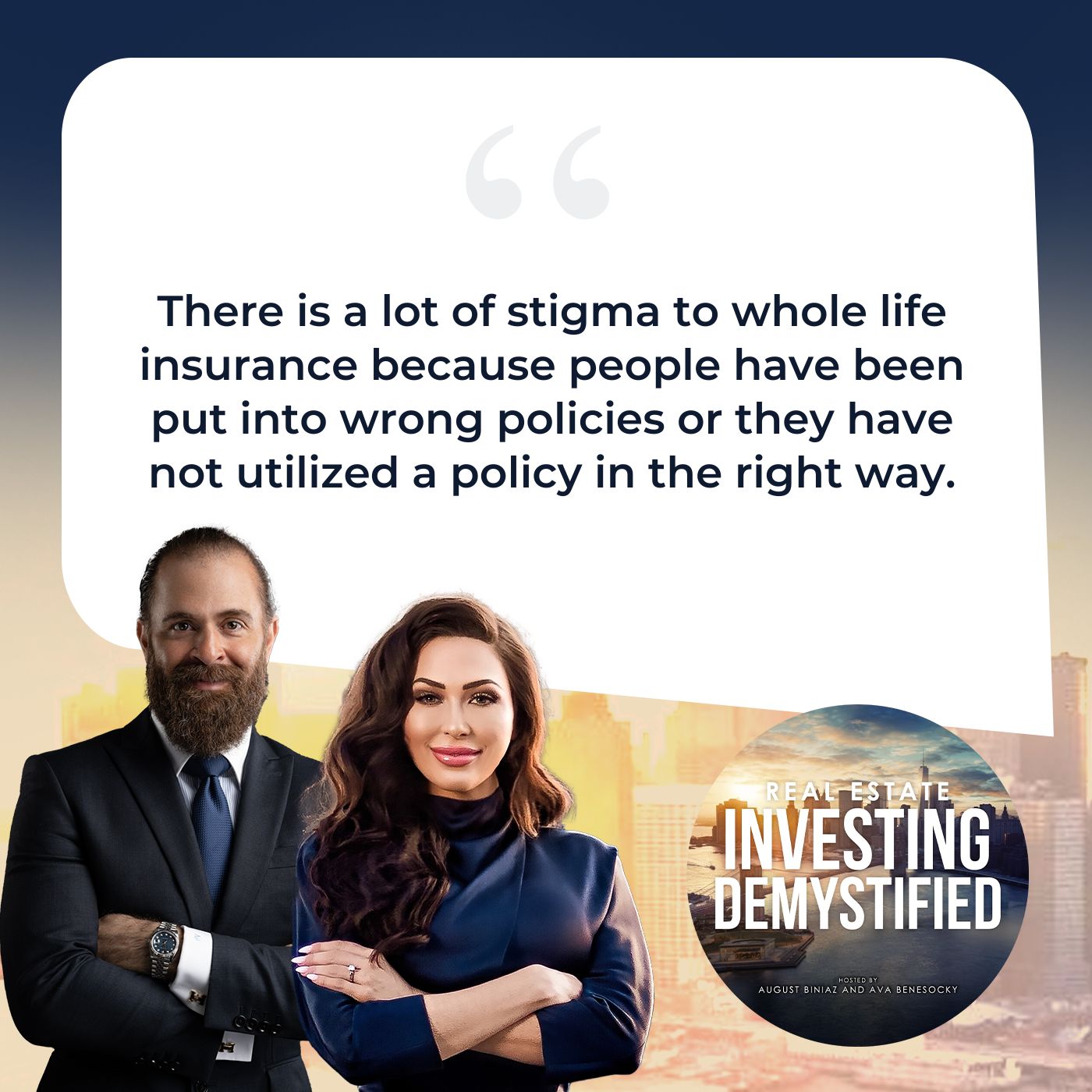
Common Mistakes With Whole Life Policies: Navigating The Nuances
Whether you listen to the pro-life insurance crowd or the anti-life insurance crowd, you almost have to take a shower when you’re done. It’s out of control. How does this get messed up? I’ll give you guys an example. I would get an angry email from someone who said, “You’re a scam artist. I listened to a podcast. I went to my brother-in-law, who works for this insurance company. He set the policy up, and it doesn’t do anything that you mentioned or said.” I’m like, “Yeah, because it’s set up with, number one, the wrong company. It doesn’t have the right vehicle. It’s set up with the wrong agent. They have no idea of how to design this specifically for this way.”
Once it’s set up with the right company and structured correctly with the right agent, you’re going to need a coach. You’re going to need someone to guide you. This is a process. It is a system. Even if it’s set up with the right company and structured correctly, you could still mess it up. People have reached out to me, and they’re like, “It had to be set up wrong.” I’m like, “You’re managing it wrong. The agent that set it up for you did set it up correctly.”
To your point, there are a lot of misconceptions. I agree with a lot of what Dave Ramsey says about whole life because it’s also sold to the public at the retail level. It’s terrible. What I would tell your audience is that there’s a completely different world out there. How do the ultra-affluent and ultra-wealthy family offices buy life insurance? It’s a completely different world.
It’s the exact same way to say, “How do amateur real estate investors buy properties, finance them, and invest them versus the professionals?” You can’t even compare it. It looks different. It’s day and night. It’s the exact same thing. It could be messed up very easily. That’s why even if everything is set up correctly, you need someone with ongoing coaching to guide, help, track, and make sure you’re doing the right thing, and you keep on implementing and executing it in the right way.
That’s perfect. I appreciate it. I learned a lot on this one. We’ve had other guests who utilize this policy, but these are probably the most comprehensive lessons we’ve learned. Thank you so much for that. Let’s get to the second segment of our show, if there are no other questions.
The 10 Championship Rounds To Financial Freedom
Let’s get to the ten championship rounds to financial freedom. M.C., there are ten questions. Are you ready?
I am ready.
Whatever comes top of mind. First question, who’s been the most influential person in your life?
My parents, definitely. I’ve learned something from both of them. My dad is a well-known martial artist. That’s where the ninja comes from in the cashflow. My mom has always been the rock of our family and my biggest supporter. I’ve learned a lot from both of them, whether it’s perseverance, resilience, and then also being compassionate on both sides. They’ve been the most influential people.
Are they back in South Africa, or are they in the US?
They’re back in South Africa.
In Cape Town?
Stellenbosch. They’re on a small holding between farms in the Winelands outside.
I was in South Africa. This was a few years back. In 2018, I was there.
Next question, M.C., what’s the number one book you’d recommend?
The Creature from Jekyll Island is a good one by G. Edward Griffin to read. To read it or re-read that will bring you up to speed on what’s going on in the world with the world financial system, the banking system, and all of the different things that we’re seeing. You’ll know what money is, how money works, how banking works, and the global banking system works. That’s a pretty good one.
Right on. I’m going to read that. Next question, if you had the opportunity to travel back in time, what advice would you give your younger self, that young rugby player?
Enjoy the whole process. It’s that whole thing where if somebody went back to you at your younger self and said, “You’re going to fail 9 out of 10 times, but that 10th time, you’re going to do something incredible, and you’re going to build something amazing,” would you still feel defeated five failures in?” I would say enjoy the process. Never give up and enjoy it. I wouldn’t be who I am without a ton of failures in sports, in business, and in investing. We all take our beatings from time to time, and that makes the success so much sweeter.
I love that. When you fail, you have to smile to yourself because you know you’re going to make it. I love that. The next question is, what’s the best investment you’ve ever made?
Besides marrying my wife, it is investing in myself and our family. That’s the best investment I’ve ever made, whether it’s skill sets, learning, or doing the same thing in our family to have us grow. I would say that’s the best investment. We’ve all heard this. If you take away everything from people who have made it, they will rebuild it bigger and better in a very short amount of time. I truly believe that. I lived a small part of that, too, where I started to build something, lost most of it, and came back bigger and stronger quickly. That’s what I would say is the best investment.
Right on. I love it. What’s the worst investment you’ve ever made, and what lessons did you learn from it?
There have been many of them. In some of the worst investments that I’ve made, there’s a central theme to it is where I lost complete control over the situation. I didn’t do my due diligence properly, I didn’t vet things properly. I trusted that other people had the due diligence and did the vetting. It always has to come back to you. There have been some real estate deals. There have been some energy deals and early crypto projects, not just through the currencies, but also the actual businesses. There’s a whole bunch of them.
Great answer. This is the next question. How much would you need in your whole life insurance policy to retire?
It’s interesting. I’ve never thought about a number because it changes constantly. Once you reach a certain number, then you’re like, “Ah.” It’s like a game. I love the game. I don’t think I would ever stop playing the game. As far as infinite banking, it’s a place to position cash, so it’ll continue. I never plan on stopping contributing to it.
Eventually, when our policies are all maxed up and I’m too old for any more, it’ll go on the kids and the grandkids. For me, it’s always been about the game, playing the game, and loving the game. When I was younger, I looked at it that way, too. Once you get to certain stages, you’re like, “I was completely wrong about this number. This wouldn’t work.”
It's always just been about the game and playing the game and loving the game. Share on X
August and I don’t have a number either, right?
My number is more.
Next question, M.C., if you could have dinner with someone, dead or alive, who would it be?
That’s an interesting one. I like that one. Do you know what one of my favorite TV series is? I don’t watch a lot of TV. There’s a series that I watch from time to time called The Man Who Built America. What it is, is about Vanderbilt, Rockefeller, Edison, Carnegie, Morgan, and all these guys. If I have to bring in a couple of folks, you would probably throw in Elon Musk in that conversation, too.
To be in a room with those folks. What a series. It shows the challenges that a lot of them faced and then how they had to pivot and adjust. If I had to pick one of them, it’ll probably be Andrew Carnegie because he was the same immigrant like me that started from very humble beginnings and then ended up building an empire and growing an empire. He still has buildings that have his name on them.
That’s amazing.
Great. The next question is, if you weren’t doing what you’re doing, what would you be doing?
I love to learn things, do them, and then teach them. It would be some form of teaching or coaching. I’m coaching my son and my daughter’s Little League baseball and Little League softball teams, too, and I love it. I never played baseball or softball. I grew up playing cricket in South Africa. I learned it and learned all these things. I love to teach, enjoy, and build teams. I would be doing the same thing. I would be teaching. I would be figuring something out and then teaching other people how I did it and how they can do it, too.
The other children are there for three days. They’re like, “What’s going on? Why isn’t this stopping?” He’s like, “This is cricket time. Cricket goes on for three days.”
Really?
Yeah, the game goes on.
Do you know what’s funny? My son was playing in a tournament, and because of the time constraints in the tournament, the one game that he played ended up in a tie. All the kids and their parents were like, “Tie? What is this?” I said, “This is nothing. I grew up in South Africa. We would play for three days, and it would end up in a tie.”
What do you mean by play for three days?
The game goes on. Cricket goes on for a long time.
You play for two days. When they play at a more professional level, it’s three days. For international, it’s five days. You play for five whole days, and it can end up in a tie.
We have two more questions here. This is my favorite question, M.C. Book smarts or street smarts?
I’ll take street smarts any day. That’s a great separator there. The street smarts guys and gals that have been around know how to get it done because they know how the world works.
Last question. If you had $1 million in cash and you had to make one investment, what would it be?
That’s a good one. Infinite banking policies and thrown into real estate. There you go.
M.C., let everybody know the best way that they can reach you, for everybody who’s tuning in, please.
Thank you so much. If they want to go to the link, GetWealthyForSure.com, that’s the title of my new book, where I share this strategy and more multi-generational strategies. The book is called Get Wealthy For Sure: The #1 Financial Strategy for Business Owners to Multiply Wealth Predictably. At GetWealthyForSure.com, they can request a book from my team. We’ll ship it out to them by shipping and handling.
There are also videos on there and case studies of how we use it. Different types of strategies regarding infinite banking are there. There’s also a booking link. If you want to set up a call with me and my team, you could schedule it there, and we’ll explore options for you and your family. It’s GetWealthyForSure.com.
Thank you so much. We appreciate it.
Thank you so much for having me.


